
What’s stopping Apple and Samsung from settling?
Patent settlement talks between Apple and Samsung have been planned for a while, and despite the major importance they have to both companies, it wasn't until last week that executives met to discuss whether they can agree on ending the quarrel between them. So what happened? They couldn't set their differences aside as the settlement talks have hit a bump in the road, not agreeing on each other’s value when it comes to patents.
After numerous meetings in court it's clear that settlement is the best option, but the companies haven't yet arrived at a compromise, and the two companies' other legal disputes haven’t been put on hold, as Apple is still trying to resolve an issue it has with Samsung in a San Jose federal court on July 30.
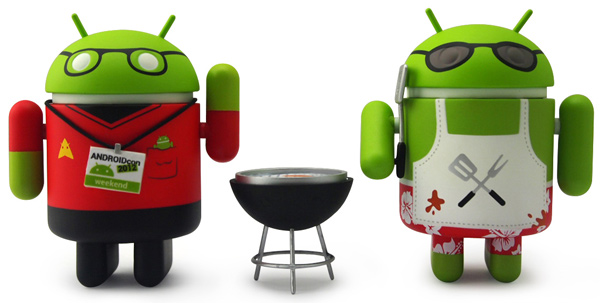
Get Android device notifications on your PC with DeskNotifier
How many times do you look at your phone when you are at your computer? If you are working in an office you may well have done the decent thing and turned down your volume – this means that there is no way of knowing when you receive an SMS or some other notification that you may need to see. This is where DeskNotifier and DeskNotifier for Android can help, enabling you to see notification in Windows.
You’ll need to install both the desktop and Android version of the app and you can choose between using it when your phone or tablet is connect to your computer via USB, or over Wi-Fi. Whenever a notification appears on your Android device, a similar alert will be generated in the form of a taskbar balloon popup. You can also choose to have a sound played, but if you have switched off sounds on your Android device, this may only be useful if you are useful headphones.

Microsoft's Exploit Mitigation Tool (EMET) gets a new bag of tricks
Hackers are having a field day these days. No one is safe. But that doesn't mean that Microsoft or other companies aren't trying to design mitigation techniques to keep hackers out.
In that vein, Microsoft released the enhanced Mitigation Experience Toolkit (EMET) which is designed to help prevent hackers from gaining access to your system. Yesterday, the company made available a preview version of EMET 3.5, introducing four new mitigation features construed at mitigating Return-Oriented Programming (ROP) attacks.

Troubleshoot PC problems with Webroot System Analyzer
If you regularly help to fix issues with other people’s PCs then you’ll know that trying to understand those problems is the first major hurdle. They may have told you that their system is slow, for instance, but could this be malware? Resource-hungry software? Hardware issues? It could take a while to find out.
But that’s where Webroot’s System Analyzer comes in. The program is a small (669KB) portable executable which scans your target system at a click, and within a minute or two will display a report highlighting any issues which need your attention.

DLNA media server Serviio 1.0 debuts
London-based Petr Nejedly has released the first stable version of his DLNA media server app for Windows, Mac and Linux. Serviio 1.0 exits beta by introducing both free and Pro versions, with all functionality present during the beta testing kept free as promised by the author.
Serviio 1.0, which can be installed on Linux-based NAS drives as well as PC and Mac, allows users to stream video, music and photos from the host device to any other DLNA-ready device, including Smart TVs, mobile devices and other computers.

Tomahawk makes music more social
If you are a music fan, you’ll undoubtedly have an extensive collection of MP3s and other music files on your hard drive. It is also likely that you listen to music on Spotify and Sound Cloud, and perhaps watch the occasional music video on YouTube. Tomahawk is a music player that enables you to access all of this and more in one handy application but there is a social focus to the player that opens up some interesting options.
Software that broadcasts information about the music you are listening to is nothing new, but this is a feature that you will find in Tomahawk. The program will scour your hard drives for music files and create a library for you. As you listen to your collection, Tomahawk enables you to view artist information and discover related artists that you may be interested in. This is all well and good, but it is the social aspect of Tomahawk that is especially interesting.

Is someone messing with your PC? KeyCounter can tell you
When was your PC being used yesterday? Whether you want to fill in a time sheet, or you think someone’s accessing your system without permission and would like to know for sure, it could be very interesting to find out.
And KeyCounter is very lightweight tool which could help you to reveal all.
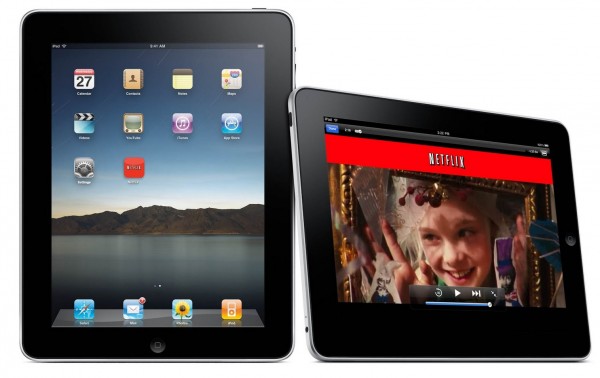
Summer doldrums hit Netflix, stocks plummet
Users love Netflix, it's something of a cultural phenomenon in America. But slow subscriber growth in the United States, high content acquisition costs, and the high overall cost of rapid global expansion have kept the company from net profitability in the most recent quarters.
Tuesday evening, the company released its second quarter earnings, which triggered a massive 25 percent drop in stock value based upon the appearance that Netflix wasn't performing up to expectations. At the closing bell Wednesday, Netflix stock hovered at $60.28
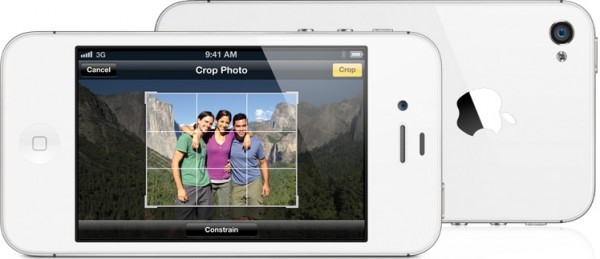
iPhone sales are slowing, deal with it
Apple shares closed down 4.32 percent today, keeping with a trend started during after-hours trading yesterday. The real question: Could matters have been much worse, if not for the big carrot that came with the little stick? Apple missed fiscal Q3 Wall Street analyst consensus for revenue and income, but announced a big dividend and promise of more to follow. Performance was by no means bad, just not as good as forecast and the dividend, $2.65 per share, is something for shareholders to smile about.
But behind the magic, I have to ask: Is Apple distracting shareholders and Wall Street analysts, making them look over there so they miss the trick going on over here? It's a question I can't answer but can only speculate about. Another quarter of results will reveal much. One thing is certain now: iPhone sales are slowing. There's no if about it, but why. Are people waiting for the new model or are Android rivals like Samsung pulling away more buyers?

A 7-inch tablet from Apple would just create more lawsuits
Apple is one of the most important companies in the world of consumer technology and one that has changed the destiny of the smartphone and the tablet. It came as a big surprise when the Cupertino, California-based company announced the iPad more than two years ago. In 2010, Apple made waves with its first tablet generating $9.566 billion in revenue from the iPad alone, and in 2012 it's making headlines again with a smaller, seven inch tablet it hasn’t even announced yet.
In 2010 Apple had the market all to itself, with the iPad dominating 83 percent of the tablet market. Why? The iPad wasn't designed to have the most cutting edge software or hardware in terms of features or speed, but it was conceived to offer easy-to-use software with hardware to match it, wrapped in a good looking package. It sold 14.789 million units in 2010 alone, so it's clear the idea caught on. The original iPad was released in a time when tablets weren't as popular as they are today, and despite previous efforts by Microsoft with the TabletPC, they never caught up. So what's changed?
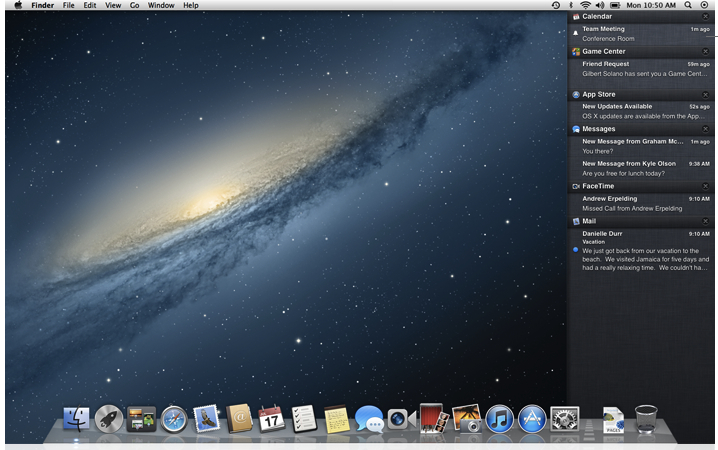
Why should I, a Windows user, care about Mountain Lion anyway?
As it has been widely reported today, Apple released its latest desktop operating system, OS X 10.8 (Mountain Lion) to the public. The operating system costs just $20 to download through the Mac app store, and is available to all current Mac users running OS X 10.6 or higher.
But you are a Windows user with no intention of switching over to Mac OS. If you bought a Mac you'd, probably boot Windows on it. You really have no place for Mountain Lion in your heart or mind, so what could anyone possibly say about it that would make you nod your head in agreement that a feature is cool or signifies one trend or another?

ON AIR Skypes music details as you listen
Most people are keen to share their unquestionably excellent musical taste with everyone they know, and what better way to go about it than through a chat client. ON AIR is a plugin for Skype that enables you to share details of the music you are currently listening to by having your Skype status message automatically changed whenever a new track plays.
As well as track information, your Skype status can also be customized through the use of text, links and emotions. The plugin includes an extensive history section that keeps a record of all of the tracks you have been listening to.
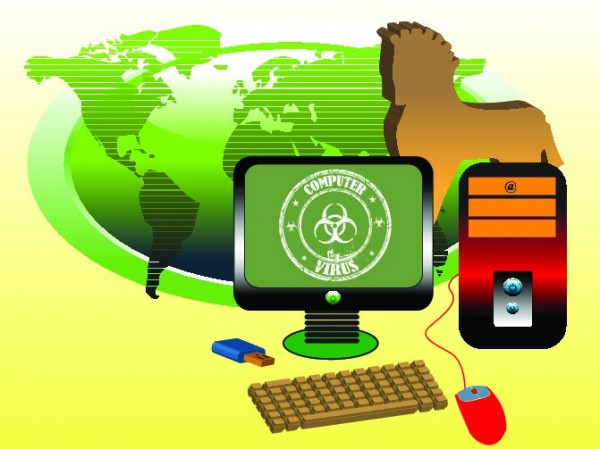
Malware infects three-quarters of the world's top banks
File this story in the "Who do you trust with your money?" category.
Eighteen of the top 24 banks in the world have malware problems, security firm Lookingglass says on Wednesday. Even three-year old worms that have long had patches and fixes to address them continue to infect the PCs of banks, including Conficker, found (gasp) in the IT deployments of 10 of the top 24.
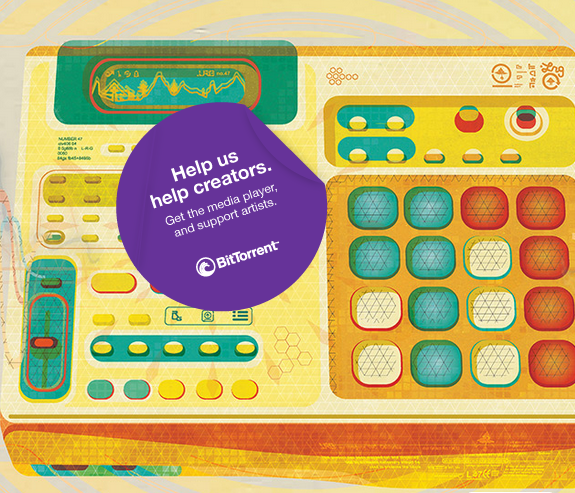
BitTorrent: Entertainment's future is free, and includes RealPlayer
How do you monetize a technology that is hard to monetize? BitTorrent, the company behind all things torrent and the uTorrent client has several answers for that. Not long ago it began to offer the uTorrent Plus client that added features like antivirus protection, a build-in media player or a media converter for a price to the uTorrent program.
But that did not really solve the question that artists and other members of the entertainment industry were asking: how are they going to monetize their content using BitTorrent?

Free Wi-Fi comes to London in time for the Olympics
Virgin Media has already introduced free Wi-Fi to selected Underground stations -- with more to be added by the end of the year -- and now O2 is doing its bit to transform London into Europe’s largest free Wi-Fi zone with a roll out of hotspots at numerous landmarks across the city.
Free to access and use, irrespective of what network you’re on, the hotspots are already available at Oxford Street, Regent Street, Trafalgar Square, Leicester Square, Piccadilly Circus and Parliament Square, with Covent Garden to be added soon. The first time you connect you’ll need to register your details, but after that you’ll be automatically connected whenever you get within range of a signal. Assuming, of course, that O2 doesn't suffer another network disruption like the one it experienced recently.